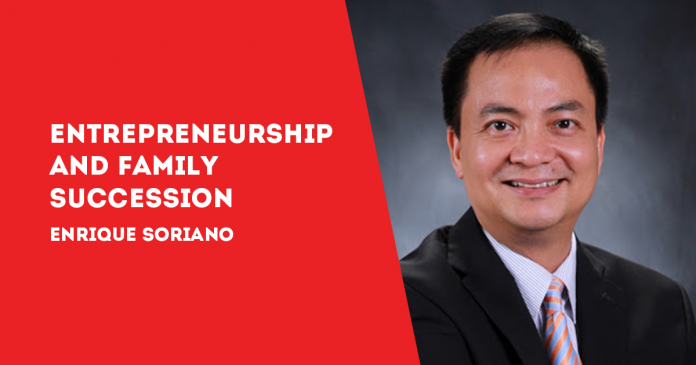
BY PROF. ENRIQUE SORIANO
Management and Ownership Succession to the most deserving
Should management and ownership continue in the family? Should the next business leader be chosen among the children? What if none of the offspring are qualified? Can a non-family member assume the role? In what capacity? As successor, mentor, or transition CEO? Should I start organizing a formal board? Who can sit in the Board? Is it necessary to have Independent directors? How do they function? Will my power be diluted when the Board is in place?
In a non-family business organization, the desirable mindset should primarily focus on the overarching values which are growth, innovation, and a shared vision. And they are reinforced based on two key corporate principles that shareholders and directors must legally embrace: duty of care and single-minded loyalty to the company.
For a family business to thrive, it is imperative for a founder that any disruption that will tend to impact growth must be taken out. It is also noteworthy that there is nothing in any business model that mandates succession as the exclusive domain of family members. In any governance and succession journey, every founder must realize that the greater good philosophy (what is best for the business) must and will always prevail. In truth, the most committed and deserving family or non-family member must be installed as the successor.
Unfortunately, for many family enterprises, the answers to the questions take a back seat. They are given less priority over factors like preserving the family name or culture, living up to the expectations of earlier generations, and providing business opportunities for future generations. The traditional mindset poses a challenge and a dilemma to every family-owning business that members are left to continue to wrestle with because succession, in whatever form, is inevitable, and only the wise, objective and forward-looking business leader can address family succession issues before they escalate into a full-blown conflict./PN





